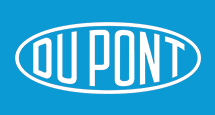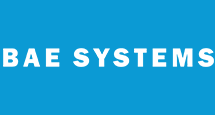Visiongain Publishes Cell-Based Assays Market Report 2024-2034
05 January 2024
Visiongain has published a new report entitled Cell-Based Assays Market Report 2024-2034: Forecasts by Product (Instruments (Microplates, Microplate Reader, Liquid Handling System, Incubator, Microscope, Others), Consumables (Reagents, Assay Kits, Cell Lines, Probes & Labels, Others), Software, Services)), by Application (Drug Discovery, Basic Research, ADME Studies, Toxicology, Others), by End-users (Pharmaceutical & Biotechnology Companies, Academic Institutes, CROs, Others) AND Regional and Leading National Market Analysis PLUS Analysis of Leading Companies AND COVID-19 Impact and Recovery Pattern Analysis.
The Cell-Based Assays market is estimated at US$18,875.2 million in 2024 and is projected to grow at a CAGR of 8.7% during the forecast period 2024-2034.
Growing Demand for Precision Medicine Impacting Cell-Based Assays Market Positively
The growing emphasis on precision medicine has emerged as a transformative force in the field of healthcare, significantly impacting the cell-based assays market. Precision medicine seeks to customize medical treatments based on individual patient characteristics, taking into account factors such as genetic makeup, lifestyle, and environmental influences. This paradigm shift has profound implications for drug development and necessitates advanced tools like cell-based assays to meet the demands of personalized therapies. For instance, in the year 2023, approximately 2.3 million genetic tests conducted globally were employed for precision medicine treatments. Projections indicate that by 2027, this number is expected to rise to approximately 5.5 million. In addition, in the year 2023, personalized medicines constituted 35% of the overall FDA-approved new molecular entities. It is anticipated that by 2024, this percentage will surpass 45% of the approved new molecular entities.
How has COVID-19 had a Significant Impact on the Cell-Based Assays Market?
The COVID-19 pandemic has exerted a profound impact on various sectors, including the life sciences and healthcare industries. The cell-based assays market, which plays a pivotal role in drug discovery, development, and research, has not been immune to these effects. The pandemic has led to disruptions in supply chains, delays in research activities, and a shift in priorities towards addressing the immediate challenges posed by the virus. Many research institutions and pharmaceutical companies repurposed their resources and expertise to focus on COVID-19-related projects, diverting attention and resources away from non-essential research, including certain cell-based assays. Additionally, lockdowns, social distancing measures, and restrictions on laboratory activities have hindered the smooth functioning of research facilities, impacting the overall demand for cell-based assays.
How will this Report Benefit you?
Visiongain’s 314-page report provides 114 tables and 170 charts/graphs. Our new study is suitable for anyone requiring commercial, in-depth analyses for the Cell-Based Assays market, along with detailed segment analysis in the market. Our new study will help you evaluate the overall global and regional market for Cell-Based Assays. Get financial analysis of the overall market and different segments including product type, application, and sales channel and capture higher market share. We believe that there are strong opportunities in this fast-growing Cell-Based Assays market. See how to use the existing and upcoming opportunities in this market to gain revenue benefits in the near future. Moreover, the report will help you to improve your strategic decision-making, allowing you to frame growth strategies, reinforce the analysis of other market players, and maximise the productivity of the company.
What are the Current Market Drivers?
Increased Need of Cell-Based Assays in Drug Discovery and Development
The continual need for more efficient and reliable methods in drug discovery and development stands out as a primary driver propelling the growth of the cell-based assays market. In the dynamic landscape of pharmaceutical research, cell-based assays have become indispensable tools, playing a pivotal role in various stages of the drug development pipeline. One key aspect where cell-based assays make a significant impact is in early-stage drug screening. These assays provide researchers with a platform to assess the effects of potential drug candidates on cellular functions, allowing for the identification of promising compounds. By using cells as a model system, researchers can gain insights into how drugs interact with biological pathways, facilitating the selection of candidates that are more likely to exhibit therapeutic effects. For instance, the exploration of artificial intelligence in pharmaceuticals presents compelling prospects for drug development. Discovering efficiencies in the drug development pipeline has the potential to annually save the industry tens of millions, expedite the introduction of treatments to the market, and ultimately enhance patient outcomes.
Advances in Biotechnology Driving the Demand for Sophisticated Cell-Based Assays
Advances in biotechnology, specifically in genomics, proteomics, and cell biology, are playing a pivotal role in propelling the demand for sophisticated cell-based assays. The convergence of these technological advancements has opened new avenues for researchers, enabling them to delve deeper into the intricacies of cellular functions, signaling pathways, and complex molecular interactions. For instance, in 2023, biotechnology contributed $436 billion to drug revenues, demonstrating a consistent upward trend over recent years.
Where are the Market Opportunities?
Growing Adoption of Label-Free Cell-Based Assays
The growing adoption of label-free cell-based assays represents a significant paradigm shift in the field of biomedical research and drug discovery. Label-free assays offer distinct advantages over traditional methods by eliminating the need for exogenous labels or dyes, allowing for real-time and non-invasive monitoring of cellular responses. This innovative approach provides researchers with a more physiologically relevant understanding of cellular behavior, enabling a more accurate representation of biological processes. The label-free technology's capacity to capture dynamic cellular changes in their natural state is particularly valuable in studying complex phenomena such as cell signaling, migration, and proliferation. For instance, computer vision meets microfluidics with the utlization of a label-free method for high-throughput cell analysis.
3D Cell Culture Models as a Cornerstone of Advanced Assays
The adoption of 3D cell culture models represents a significant and transformative opportunity within the cell-based assays market. In contrast to conventional 2D cell cultures, 3D models offer a more sophisticated and physiologically relevant environment that better mirrors in vivo conditions. This enhanced representation of biological systems is particularly crucial in the fields of drug screening and toxicity testing, where the limitations of 2D cultures have become increasingly recognized. The dynamic nature of 3D cell culture models allows for a more accurate simulation of cellular interactions, tissue architecture, and microenvironments, providing researchers and pharmaceutical companies with a more realistic platform to assess drug responses and potential toxic effects.
Competitive Landscape
The major players operating in the Cell-Based Assays market are Agilent Technologies Inc., Becton, Dickinson and Company, BioAgilytix Labs LLC, Bio-Rad Laboratories, BioVision Inc., Charles River Laboratories, Cisbio (Revvity), Danaher Corporation, DiscoverX (Eurofins), F. Hoffmann-La Roche Ltd, GE HealthCare, InSphero, Merck KGaA and Thermo Fisher Scientific Inc. among other players. These major players operating in this market have adopted various strategies comprising M&A, investment in R&D, collaborations, partnerships, regional business expansion, and new product launch.
Recent Developments
• In December 2023, BD introduced a suite of new cell culture solutions designed to streamline cell line development and manufacturing processes. These solutions include the BD BACS™ 2.0 Automated Cell Culture System, the BD OptEIA™ 3D Cell Culture Matrix, and the BD FACSVerse™ Flow Cytometer.
• In November 2023, Bio-Rad Laboratories introduced a new cell-based potency assay for biologic drug development. The assay uses the xCELLigence RTCA system to measure the activity of biologic drugs in real time. This information can be used to optimize the development and manufacturing of biologic drugs.
Notes for Editors
If you are interested in a more detailed overview of this report, please send an e-mail to contactus@visiongain.com or call +44 (0) 207 336 6100.
About Visiongain
Visiongain is one of the fastest-growing and most innovative independent media companies in Europe. Based in London, UK, Visiongain produces a host of business-to-business reports focusing on the automotive, aviation, chemicals, cyber, defence, energy, food & drink, materials, packaging, pharmaceutical and utilities sectors.
Visiongain publishes reports produced by analysts who are qualified experts in their field. Visiongain has firmly established itself as the first port of call for the business professional who needs independent, high-quality, original material to rely and depend on.
Recent News
Visiongain Publishes Drug Delivery Technologies Market Report 2024-2034
The global Drug Delivery Technologies market is estimated at US$1,729.6 billion in 2024 and is projected to grow at a CAGR of 5.5% during the forecast period 2024-2034.
23 April 2024
Read
Visiongain Publishes Cell Therapy Technologies Market Report 2024-2034
The cell therapy technologies market is estimated at US$7,041.3 million in 2024 and is projected to grow at a CAGR of 10.7% during the forecast period 2024-2034.
18 April 2024
Read
Visiongain Publishes Automation in Biopharma Industry Market Report 2024-2034
The global Automation in Biopharma Industry market is estimated at US$1,954.3 million in 2024 and is projected to grow at a CAGR of 7% during the forecast period 2024-2034.
17 April 2024
Read
Visiongain Publishes Anti-obesity Drugs Market Report 2024-2034
The global Anti-obesity Drugs market is estimated at US$11,540.2 million in 2024 and is expected to register a CAGR of 21.2% from 2024 to 2034.
















